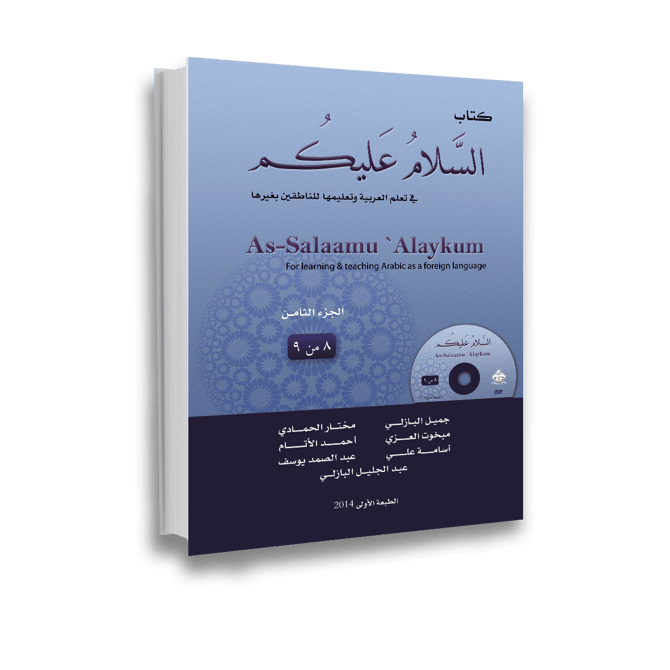
ASSALAMU 'ALAYKUM TEXTBOOK PART EIGHT
After completing this textbook, the learners will be able to:
1. Participate in debates on Islamic and Arab civilization, singing, health and popular diseases, events changed history in the past, events changed modern history, critical issues, and economy and commerce.
2. Define the author’s point of view, and agree or disagree with the author with strong reasoning.
3. Comprehend texts they hear from authentic sources without modifying them.
4. Express orally or in written their opinion on the issues and topics presented through the book, making use of the internet environment to prepare oral and written summaries and presentations .
5. Exercise morphological rules including: (????- ?????? ??????????), distinguish between first and third patterns (???, ????) of the verbs , meanings of (????, ?????), meanings of (?????, ?????), morphological scale(???) and the additional letters and elision.
6. Comprehend new grammatical rules including: causative object, predicate before subject, circumstantial [removed]types), specification, adverb of time, adverb of place, vocative, indeclinable nouns because of two reasons.
7. Learning some rhetorical concepts including: the concept of rhetoric, fluency, sciences and functions of rhetoric, the concepts of report and composition, the purpose and types of report, shortening, moving forward and backward, requesting composition, positive and negative imperative, interrogation, and vocative.
8. Practice writing chronical reports using appropriate connectors, and writing CVs.
9. Writing hygienic instructions inside the house and office.
10. Writing reports that summarize historical events using appropriate connectors.
11. Practice writing statements to increase social awareness for or against specific issues.
12. Distinguish between silent hamzah, and pronounced hamzah, and writing hamzah in different positions.
13. Realize cultural aspects related to the topics of the textbook such as: nomadism, desert, the way of incense, lute as a singing tool, religious singing, Muwashahat, popular medicine, important events in Islamic history, Yemeni meals, earthen pots, Islamic currents, women in Islam, procreation culture, local currency, polygamy accepted or rejected.
14. Practice new learning strategies such as: a) enjoyment of chosen songs, b) watching historical documentary films, c) watching documentary films on issues such children labor, vanishing paper currency, and using such topics for debates among learners.

